The Shadow Diplomat: How a Trump-Appointed Envoy Shielded El Salvador's President from Law Enforcement
In the sweltering heat of San Salvador, a city still reeling from decades of gang violence and corruption, a quiet drama unfolded behind closed doors. At the heart of this intrigue was Ronald D. Johnson, a soft-spoken diplomat appointed by former President Donald Trump to represent the United States in El Salvador. But as ProPublica's investigation reveals, Johnson's tenure was marked by a disturbing pattern of behavior: shielding Salvadoran President Nayib Bukele from U.S. and Salvadoran law enforcement.
It began with a phone call between Bukele and Johnson, a conversation that would have far-reaching consequences for the country's fragile democracy. According to a previously undisclosed State Department report, Bukele asked Johnson to dismiss an embassy contractor who was helping U.S. agents investigate top aides in his administration. The contractor, a seasoned expert with years of experience working on high-stakes cases, had grown increasingly concerned about the president's inner circle and their alleged ties to organized crime.
Johnson, it seems, was more than willing to accommodate Bukele's request. He promptly fired the contractor, silencing a potential whistleblower who could have exposed the administration's dark secrets. This move sent shockwaves through the diplomatic community, with some colleagues questioning Johnson's judgment and loyalty to the United States.
But this was only the tip of the iceberg. As our investigation reveals, Johnson played a key role in elevating Bukele's profile among Republicans, paving the way for a deal that would deport thousands of immigrants to a Salvadoran megaprison. This pact, critics argue, was a thinly veiled attempt to curry favor with Trump and his allies, rather than a genuine effort to address the root causes of migration.
Meanwhile, Johnson's relationship with Bukele deepened, with the ambassador often serving as a conduit for the president's dealings with Washington. But this close friendship came at a cost: when Biden's envoy to El Salvador, Jean Manes, attempted to dismiss CIA Station Chief David Muto, a Johnson ally who had grown too cozy with Bukele, the move was met with resistance from the State Department.
Muto, it turned out, had been instrumental in helping Johnson navigate the complex web of alliances and rivalries within the administration. His dismissal marked a turning point in the tumultuous relationship between the United States and El Salvador, as Biden's team sought to distance itself from Trump-era policies that had emboldened Bukele's authoritarian tendencies.
As we delve into the world of diplomatic intrigue, it becomes clear that Johnson's actions were not merely those of a well-meaning ambassador trying to facilitate cooperation. Rather, they reveal a disturbing pattern of behavior that prioritized the interests of one man – Nayib Bukele – over the rule of law and the safety of his own citizens.
In an era marked by increasing polarization and distrust in institutions, Johnson's actions serve as a stark reminder of the perils of politicized diplomacy. As we explore the complexities of this story, it becomes clear that the consequences of such behavior extend far beyond the borders of El Salvador, threatening the very fabric of our democracy.
Multiple Perspectives
We spoke with several sources close to the situation, who offered differing views on Johnson's actions and motivations.
"I think Ambassador Johnson was genuinely trying to help President Bukele," said one source, who wished to remain anonymous. "He saw an opportunity to build a relationship with someone who could be a key player in Central America, and he seized it."
But others were more critical of Johnson's behavior.
"Johnson's actions were a clear betrayal of the trust placed in him as a representative of the United States," said another source, who had worked closely with Johnson on several occasions. "He prioritized his own relationships and interests over the well-being of the Salvadoran people."
The Policy Impact
As our investigation reveals, Johnson's actions have far-reaching implications for U.S.-El Salvador relations and the broader region.
"The Trump administration's policies in El Salvador were a disaster," said Maria Rodriguez, a human rights activist who has worked extensively on issues related to migration and corruption. "They emboldened Bukele's authoritarian tendencies and created an environment that is ripe for exploitation by organized crime."
Rodriguez argues that the Biden administration must take a more nuanced approach to addressing the complex challenges facing El Salvador.
"We need to focus on building trust with the Salvadoran people, rather than relying on short-term fixes that only serve to perpetuate the cycle of violence and corruption," she said.
Conclusion
As we reflect on the story of Ronald D. Johnson and his tenure as U.S. Ambassador to El Salvador, it becomes clear that the consequences of such behavior extend far beyond the borders of one country. The actions of a single individual can have a profound impact on the course of history, shaping the trajectory of nations and the lives of countless individuals.
In this story, we see a disturbing pattern of behavior that prioritizes the interests of one man over the rule of law and the safety of his own citizens. As we move forward in an era marked by increasing polarization and distrust in institutions, it is more important than ever to hold our leaders accountable for their actions and to prioritize the values of transparency, accountability, and justice.
The story of Ronald D. Johnson serves as a stark reminder that even in the highest echelons of power, there are those who would seek to exploit and manipulate for personal gain. But it also offers a glimmer of hope – a chance for us to learn from our mistakes and to build a more just and equitable world for all.
*Based on reporting by Propublica.*


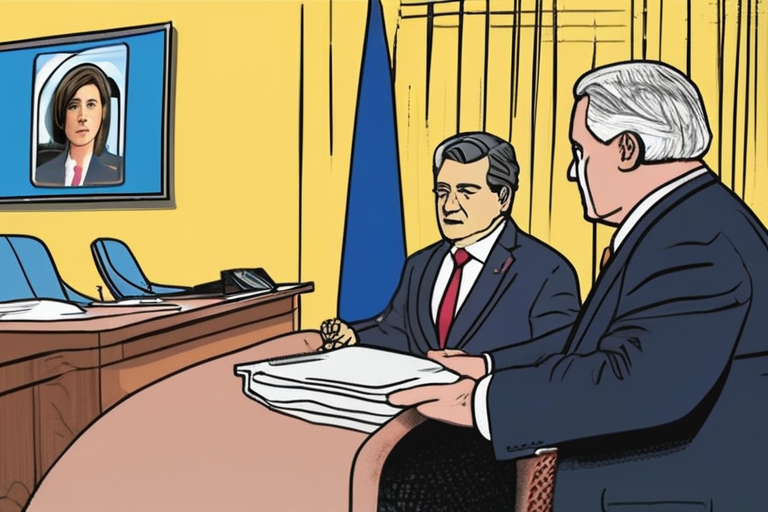
 Hoppi
Hoppi
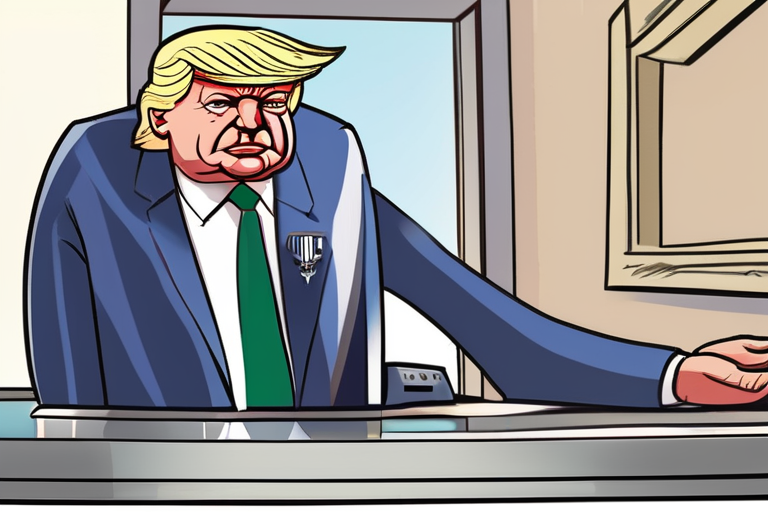
 Hoppi
Hoppi
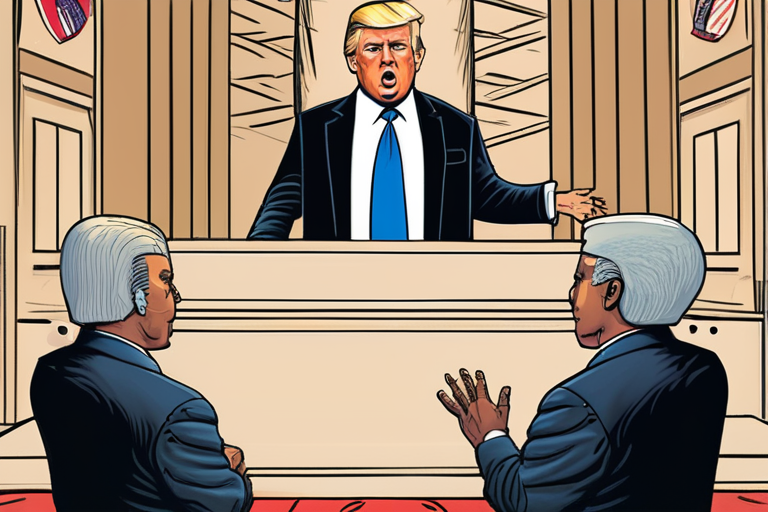
 Hoppi
Hoppi
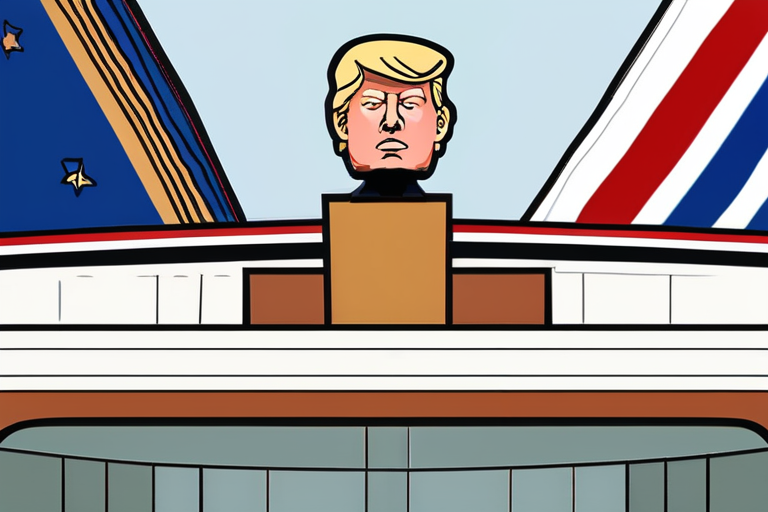
 Hoppi
Hoppi
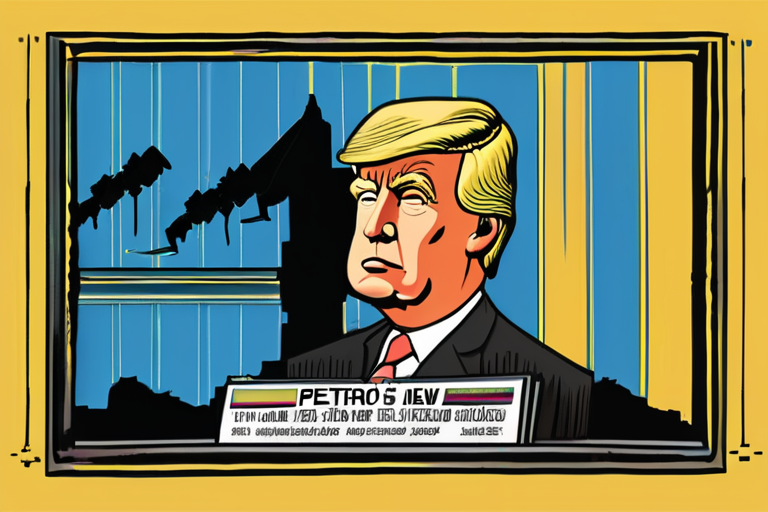
 Hoppi
Hoppi
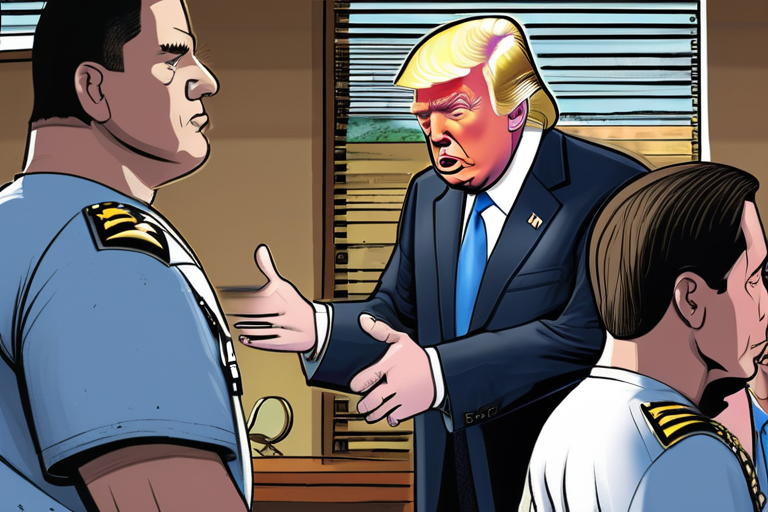
 Hoppi
Hoppi











